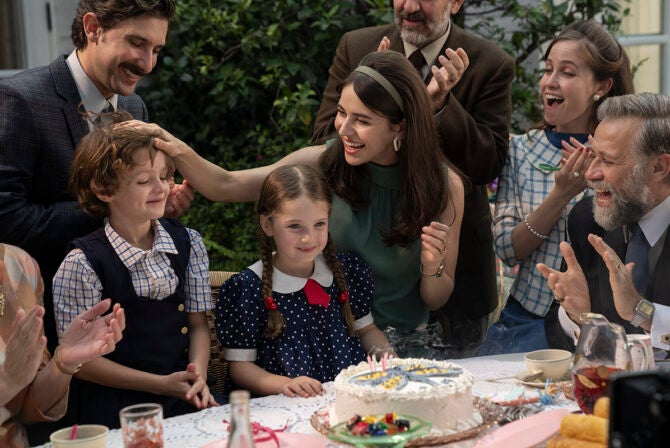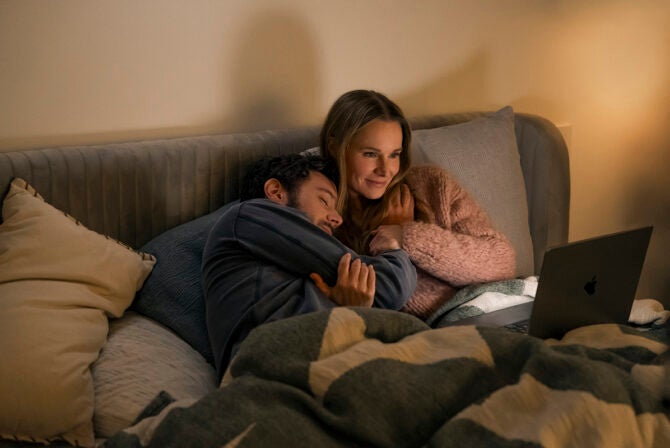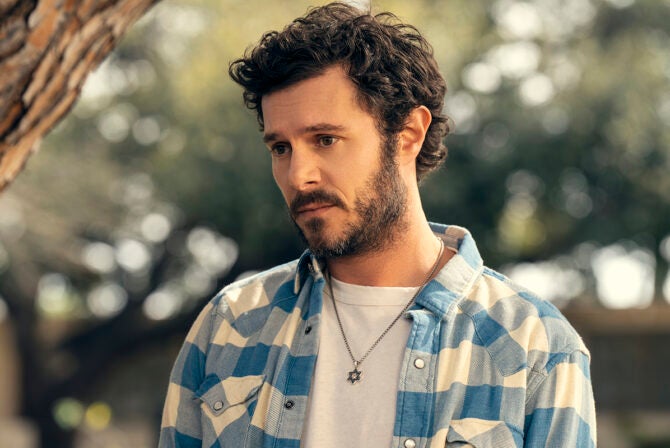I was so sad to hear of Elizabeth Edwards’ death this week. Since my mother died, I’ve reacted differently to celebrity deaths. No longer spectacles, I find myself thinking about the family, and how the waves of grief must be washing over them the way they washed over me in the days after my mother died. I think about the dozens of intensely stupid things people said to my family and me during shiva, and wonder what it must be like to have that multiplied by thousands, broadcast on televisions and computer screens around the world.
Then this morning I read that my mother had more in common with Elizabeth Edwards than breast cancer. They both wrote long letters to their children to be read after they died. Edwards began writing a letter to her children years before she died, inspired by Terms of Endearment.
Edwards’s version, although titled “dying letter” on her computer, is actually more a guide to living for the three children she is preparing to someday leave behind. “It’s more than ‘How do you get the core out of a head of lettuce?’ ” Edwards says while taking a break during a campaign stop in Iowa. “It’s ‘How you choose who you marry and what to expect from that, how you choose a church.’ ” Looking across a playground at her two youngest monkeying on the jungle gym, she chuckles: “It’s got all that butting-my-nose-into-their-lives-long-after-I’m-gone stuff.”
My mother didn’t start writing hers until she found out she was dying, with only six months to live. She had emergency brain surgery in March of 2008, and the next morning wrote a goodbye letter to my family, and another to her sisters. She ended up living until September, and composing more letters, to her closest friends, another letter to my sisters and me, and letters to be read at our weddings. By the time she wrote the letters, much of her vivacity was gone. They’re beautiful and intensely moving, but they aren’t really how I think of my mom.
Lucky for me, my mom wrote me letters all the time. I have dozens of handwritten notes from her, going back to a journal we kept together starting when I was 8. And, in perhaps the most miraculous and poignant moment of the shiva, when going through my baby book I found a letter my mother wrote to me when I was 2. Reading it just about brought me to my knees. There was my mother’s handwriting, her voice, her affectionate nicknames for me, her ability to recognize, even when I was only a toddler, exactly the kind of person I would grow up to be. Today, all of the letters from my mother are among my most prized possessions, but that one more than any of the others.
There’s a downside to the letters, though, too. Looking back, I have plenty of letters from bad times, when my mother and I had been fighting, or when one of us was hurt. I was a particularly angry and sullen kid, and it’s horrifying to see how many of the letters from my teen years begin with my mom pleading with me to tell her what was wrong. It’s virtually impossible not to look back at this letters and want to reach through time and shake a younger stupider me. Why, I wonder, was I so insistent on being a distant and petulant bitch?
The letters also drag me back into grief that I’ve been carefully climbing out of for the past two years. It’s impossible to read them and not think about what my mother would think of my life today. It makes me want to be absolutely sure that I do things that she would be happy about–but then I wonder, does that make sense? When she was alive, I didn’t have any problem differing from her, ignoring some of her advice, picking and choosing what gems of wisdom I would adhere to. Now that she’s gone, it feels insensitive or disrespectful in a bigger way if I do something I know she wouldn’t like. But is there really a difference? Don’t I still get to live my own life and do what I want to do?
Thinking about this, I’m reminded of a story I heard on This American Life last year about a woman who wrote letters to her daughter to be read at her daughter’s birthday every year after she died. The letters stressed the importance of faith (specifically Mormonism) and the girl was continuing to get them long after she left the church. Her mother’s legacy was both a blessing and a curse. While my own situation isn’t as extreme, I can sympathize. These letters are hard.
But even knowing how hard it is to read the letters, how conflicted they sometimes make me, how sad it makes me even to think about them, I think every mom and dad should write letters to their kids. Just one will do, and hopefully your child won’t have a chance to read it for many many decades, but trust me, it will be worth it–for you and for them.







